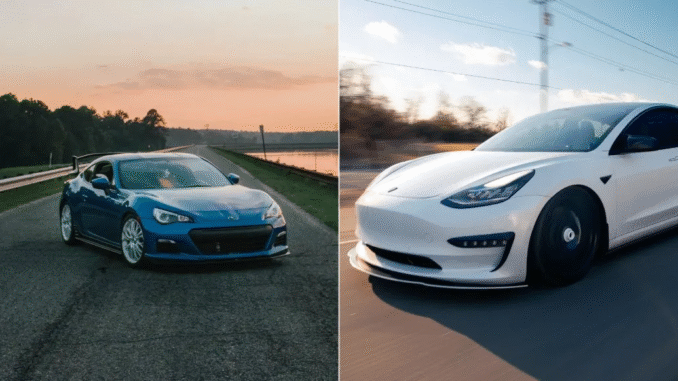
Electric vs Gas Cars: Which Is Better for You in 2025?
The automotive world is evolving rapidly, and 2025 is shaping up to be a pivotal year in the ongoing shift from gasoline-powered vehicles to electric vehicles (EVs). With rising fuel prices, growing environmental concerns, and increasing EV options on the market, many drivers are now faced with a key question:
Electric vs gas cars – which is better for me in 2025?
This article breaks down the major differences between electric and gas cars in terms of cost, performance, convenience, environmental impact, and long-term ownership. By the end, you’ll have a clearer idea of which option suits your lifestyle and budget best.
1. Initial Cost and Incentives
Electric Cars:
In 2025, electric cars have become more affordable, thanks to technological advances and government incentives. While EVs generally have a higher upfront price compared to gas cars, federal and state tax credits, rebates, and incentives often reduce the cost significantly.
For example, U.S. buyers may still qualify for a $7,500 federal tax credit, plus additional local incentives, depending on the state and model. Popular EVs like the Tesla Model 3, Hyundai Ioniq 6, and Chevrolet Bolt continue to offer competitive pricing under $40,000 after incentives.
Gas Cars:
Gasoline vehicles typically have a lower sticker price than comparable EVs and don’t rely on incentives. This makes them appealing to budget-conscious buyers who prefer a lower initial investment.
Verdict:
If you prioritize a lower upfront cost and don’t qualify for EV incentives, a gas car may be cheaper initially. But long-term ownership costs could tilt the balance.
2. Fuel and Charging Costs
Electric Cars:
EVs offer significantly lower operating costs than gas vehicles. Charging an electric car at home is much cheaper per mile than buying gasoline. In 2025, with growing solar adoption and energy-efficient charging, the cost per mile for EVs is as low as 3–4 cents, compared to 15–20 cents for gasoline.
Public fast-charging can be more expensive, but many networks offer subscription plans that reduce per-kWh costs.
Gas Cars:
Gasoline prices remain volatile and are generally higher than electricity in most regions. Even fuel-efficient vehicles can cost much more per mile to operate over time.
Verdict:
EVs win in the long run when it comes to fueling costs, especially for those who can charge at home.
3. Maintenance and Repairs
Electric Cars:
Electric vehicles have fewer moving parts, no oil changes, no exhaust systems, and less wear on brakes due to regenerative braking. This means lower maintenance costs over the life of the vehicle.
Battery replacement can be expensive, but most EVs come with warranties that cover the battery for 8–10 years or up to 100,000 miles.
Gas Cars:
Gas cars require more frequent maintenance such as oil changes, spark plug replacements, emissions checks, and more complex engine servicing. Over time, these costs add up.
Verdict:
EVs are more cost-effective to maintain and offer longer intervals between servicing.
4. Driving Range and Refueling Time
Electric Cars:
In 2025, many EVs offer driving ranges between 250 to 400 miles on a full charge, with ultra-long-range models pushing 500+ miles. Charging infrastructure has improved significantly, but refueling (charging) still takes longer than gassing up a car.
Home Level 2 chargers can fully charge most EVs overnight, while fast chargers can provide 80% charge in about 20–30 minutes.
Gas Cars:
Gas vehicles typically have longer ranges—400–500 miles per tank—and refueling takes just a few minutes, making them ideal for long-distance travel or areas with limited EV charging infrastructure.
Verdict:
Gas cars offer quicker refueling and consistent range, but EVs are catching up fast. If you frequently take road trips, gas might still be more convenient—unless you’re near a strong fast-charging network.
5. Environmental Impact
Electric Cars:
EVs are zero-emission vehicles when driven, making them a cleaner choice for the environment. Even when accounting for electricity production, EVs result in significantly lower greenhouse gas emissions over their lifetime.
Plus, as more energy grids transition to renewables, the environmental benefit of EVs continues to grow.
Gas Cars:
Gasoline vehicles emit CO2, NOx, and other pollutants, contributing to climate change and urban air quality issues. Even the most fuel-efficient cars can’t compete with EVs on emissions.
Verdict:
If reducing your carbon footprint is important, EVs are clearly the better choice.
6. Performance and Driving Experience
Electric Cars:
EVs are known for their instant torque and smooth acceleration. Many offer quicker 0–60 mph times than similarly priced gas cars. They’re also quieter, offer a smoother ride, and require less gear shifting due to single-speed transmissions.
Gas Cars:
Gas vehicles vary widely in performance. While sports cars can be exhilarating, most standard models offer slower acceleration and more engine noise.
Verdict:
EVs deliver better performance and a quieter, more modern driving experience.
7. Resale Value and Market Trends
Electric Cars:
EVs are holding their resale value better in 2025 compared to previous years, thanks to increased demand and improved battery durability. Brands like Tesla, Ford, and Hyundai are seeing stronger used EV markets.
Gas Cars:
Gas cars still maintain decent resale value, but growing EV adoption and stricter emissions regulations are slowly reducing demand for traditional combustion vehicles.
Verdict:
EVs are becoming a smarter investment as they gain popularity and longevity in the used market.
8. Availability and Model Variety
Electric Cars:
The EV market in 2025 is more diverse than ever, with sedans, SUVs, trucks, and even sports cars available from major brands like Ford, Tesla, GM, Hyundai, BMW, and Toyota.
Gas Cars:
Gas cars still dominate overall vehicle sales, and there’s a broader range of budget options, especially for compact cars and trucks.
Verdict:
EV options are growing, but gas cars still offer a wider selection in some categories—though the gap is narrowing fast.
Final Thoughts: Which Is Better for You?
When it comes to choosing between electric and gas cars in 2025, there’s no one-size-fits-all answer. Your decision depends on your driving habits, budget, location, and values.
Choose an Electric Car if you:
- Want to save money on fuel and maintenance
- Have access to home or workplace charging
- Are environmentally conscious
- Prefer a quiet, high-tech driving experience
Choose a Gas Car if you:
- Drive long distances frequently
- Live in an area with limited charging infrastructure
- Need a lower upfront cost without depending on incentives
- Prefer the simplicity of quick refueling
As EV technology continues to improve and infrastructure expands, electric cars are becoming the better long-term investment for most drivers. Still, for certain lifestyles and regions, gas-powered vehicles remain a practical choice.

